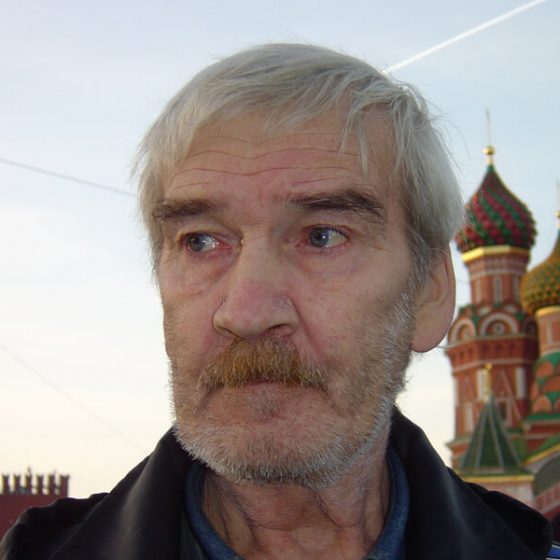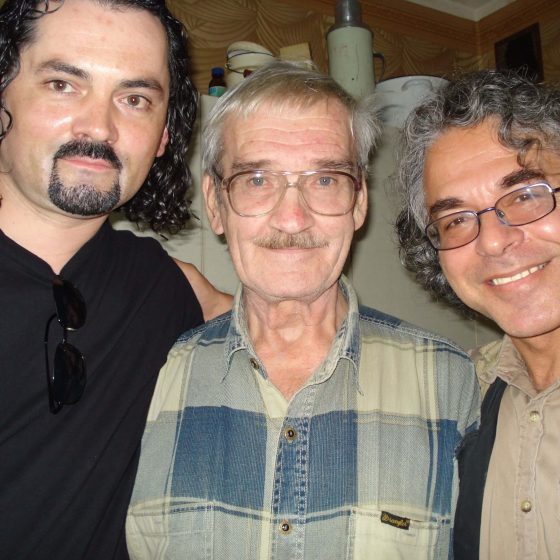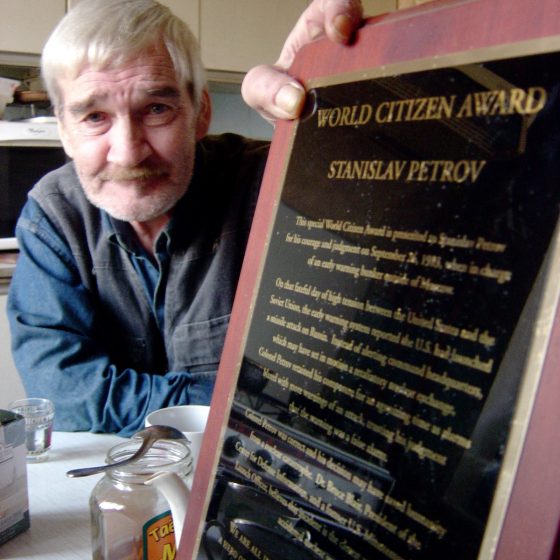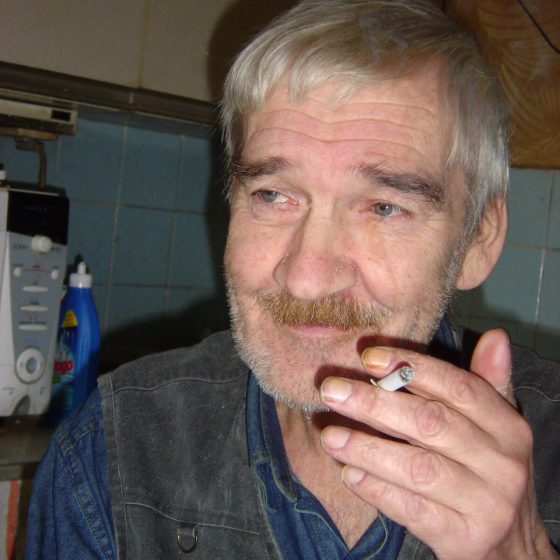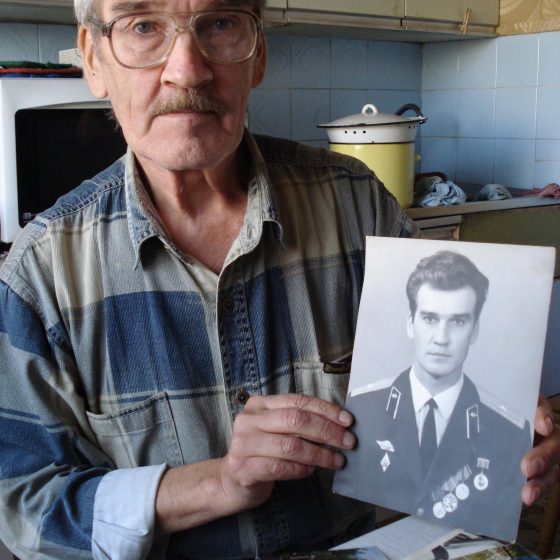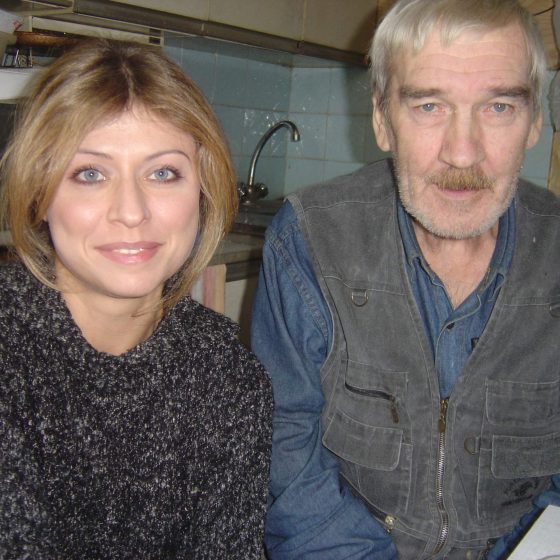The Red Button (Czerwony Guzik)
The Red Button is a 52-minute documentary film that tells the dramatic story of Stanislav Petrov, the Russian officer who, in 1983, saved the world from atomic war.
During the early ‘80s, the Russian leader was Jurij Andropov, the most right-wing Soviet leader since Stalin. A known hardliner, Andropov was very wary of US activity.
It was an intense period of time in the relationship between the United States and Russia. Tensions were running high between the two superpowers, and the atmosphere was suspicious because of recent incidents. On September 5th, a Korean jet liner with 269 passengers, many of whom were American, had been shot down over Soviet territory because the Russians believed it was a spy mission. Read more below.
ABOUT FILM
ABOUT FILM - IN POLISH
CREDITS
SCREENINGS AND AWARDS
BROADCAST HISTORY
REVIEWS AND REACTIONS
ABOUT FILM
The Red Button was nominated by the Jury of the Uranium Film Festival in Rio de Janeiro for the Yellow Oscar 2012, for the best feature film of the festival.
The Red Button is a 52-minute documentary film that tells the dramatic story of Stanislav Petrov, the Russian officer who, in 1983, saved the world from atomic war.
During the early ‘80s, the Russian leader was Jurij Andropov, the most right-wing Soviet leader since Stalin. A known hardliner, Andropov was very wary of US activity.
It was an intense period of time in the relationship between the United States and Russia. Tensions were running high between the two superpowers, and the atmosphere was suspicious because of recent incidents. On September 5th, a Korean jet liner with 269 passengers, many of whom were American, had been shot down over Soviet territory because the Russians believed it was a spy mission. The action led Reagan to label Russia an “evil empire.” Soon after, the KGB communicated to the western operatives to prepare for possible nuclear war. It is now thought that throughout 1983, the Kremlin assumed that the US and its allies were planning a nuclear strike on the Soviet Union.
So it was in this tense environment that Stanislav Petrov worked deep inside Serpukhov-15, a secret bunker, monitoring early warning satellites. On September 26, 1983, Petrov was in charge of monitoring American missiles that could potentially be sent to Russia to start a nuclear war. It was not his normal duty; he was to man the post twice a month just to keep his skills from getting rusty.
ABOUT FILM - IN POLISH
Historia rosyjskiego podpulkownika, który uchronil swiat przed globalna wojna nuklearna.
W 1983 roku nastapila eskalacja zimnej wojny. KGB podejrzewalo, ze Stany Zjednoczone moga przeprowadzic atak nuklearny na Zwiazek Radziecki. 26 wrzesnia 1983 Stanislaw Pietrow mial dyzur w centrum dowodzenia Sierpuchowo-15 znajdujacym sie nieopodal Moskwy. Do jego obowiazków nalezalo monitorowanie systemu wczesnego ostrzegania, aby w momencie ataku Zwiazek Radziecki mógl od razu na niego odpowiedziec. Kilka minut po pólnocy Pietrow odebral sygnal, ze Stany Zjednoczone wystrzelily piec rakiet w kierunku ZSRR. Podpulkownikowi od poczatku wydawalo sie, ze to blad systemu. Nie chcac doprowadzic do konfliktu, zdecydowal sie nie alarmowac przelozonych. Jak sie okazalo, jego decyzja byla sluszna, gdyz atak rakietowy byl bledem systemów. Do tej pory wielu ekspertów uwaza, ze zachowanie Stanislawa Pietrowa pozwolilo uniknac globalnej wojny nuklearnej. Poniewaz podpulkownik nie wykonal rozkazu, zostal odsuniety od sluzby wojskowej.
CREDITS
Directed by:
Ewa Pieta
Miroslaw Grubek
Script:
Ewa Pieta
Produced by:
Miroslaw Grubek & Slawomir Grunberg
Director of Photography:
Slawomir Grunberg
Music:
Michal Lorenc
Edited by:
Miroslaw Grubek
Off line Editor:
Malgorzata Lukomska
On-line Editor:
Jan Mikolaj Mironowicz, PSM
Sound:
Bartlomiej Wozniak
Co-produced by:
LOGTV, Ltd & MG Production
Co-financed by:
Polish Film Institute. Dir. Agnieszka Odorowicz
SCREENINGS AND AWARDS
SCREENINGS
• International Uranium Film Festival, New York City, February 14, 2014
• (Opening night) UNAFF International Film Festival, Palo Alto, California, October 18, 2012
• 2nd International Uranium Film Festival, Rio de Janeiro, Brazil, June 2012
• (Premiere) Filmambiente, International Environmental Film Festival, Rio de Janeiro, Brazil, November 2011
AWARDS
• The Red Button was nominated by the Jury of the Uranium Film Festival in Rio de Janeiro for the Yellow Oscar 2012, for the best feature film of the festival.
BROADCAST HISTORY
• Canal Plus, Poland
Number 5 in the Canal Plus ranking!, May 2014
• ETB-BASQUE, SPAIN PUBLIC TV, September 2013
REVIEWS AND REACTIONS
The Man Who Saved the World by Doing Absolutely Nothing
By Megan Garber
The Atlantic
Sep 26 2013
It was September 26, 1983. Stanislav Petrov, a lieutenant colonel in the Soviet Air Defence Forces, was on duty at Serpukhov-15, a secret bunker outside Moscow. His job: to monitor Oko, the Soviet Union’s early-warning system for nuclear attack. And then to pass along any alerts to his superiors. It was just after midnight when the alarm bells began sounding. One of the system’s satellites had detected that the United States had launched five ballistic missiles. And they were heading toward the USSR. Electronic maps flashed; bells screamed; reports streamed in. A back-lit red screen flashed the word ‘LAUNCH.’”
That the U.S. would be lobbing missiles toward its Soviet counterpart would not, of course, have been out of the question at that particular point in human history. Three weeks earlier, Russians had shot down a South Korean airliner that had wandered into Soviet air space. NATO had responded with a show of military exercises. The Cold War, even in the early ’80s, continued apace; the threat of nuclear engagement still hovered over the stretch of land and sea that fell between Washington and Moscow.

